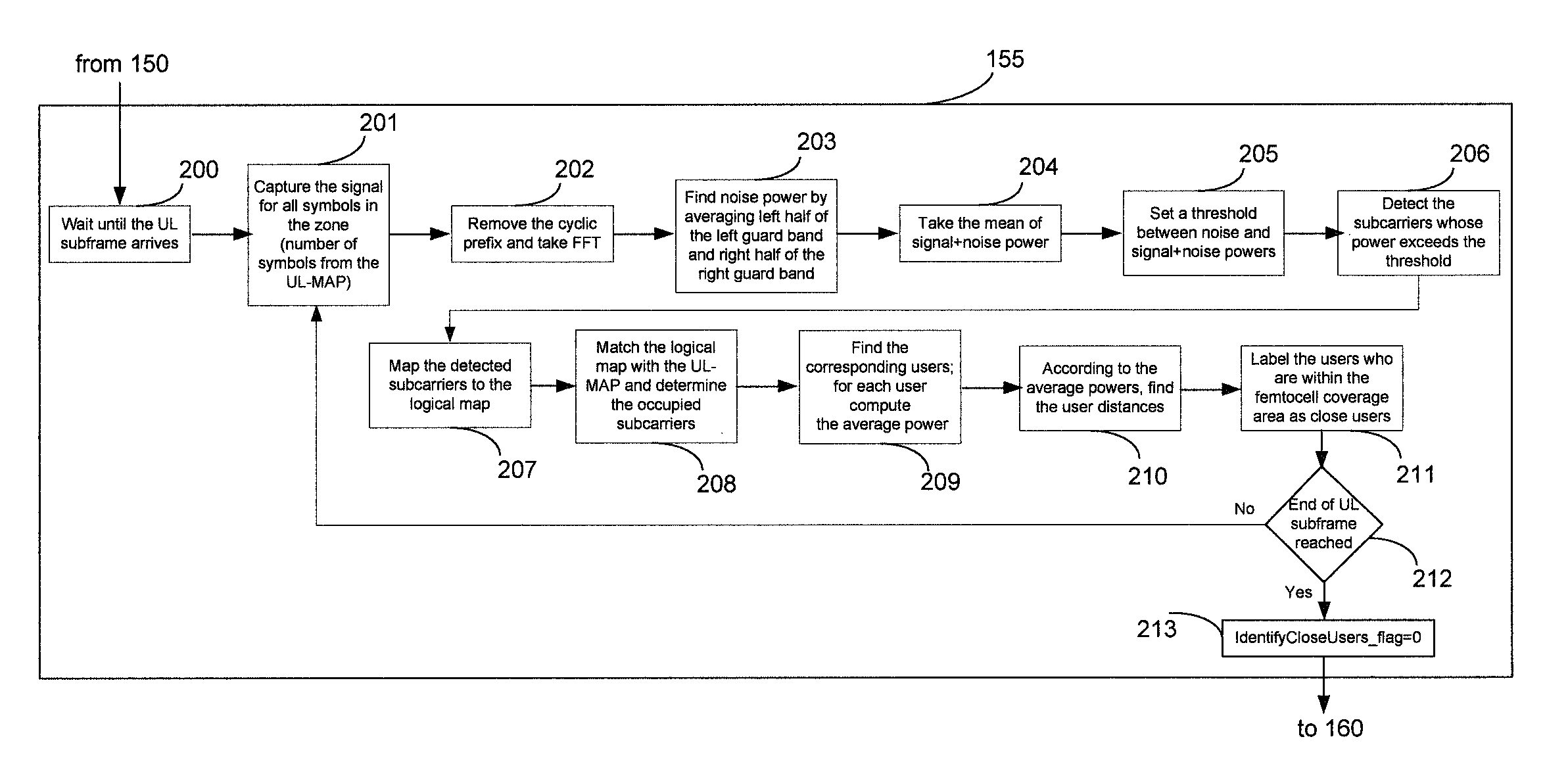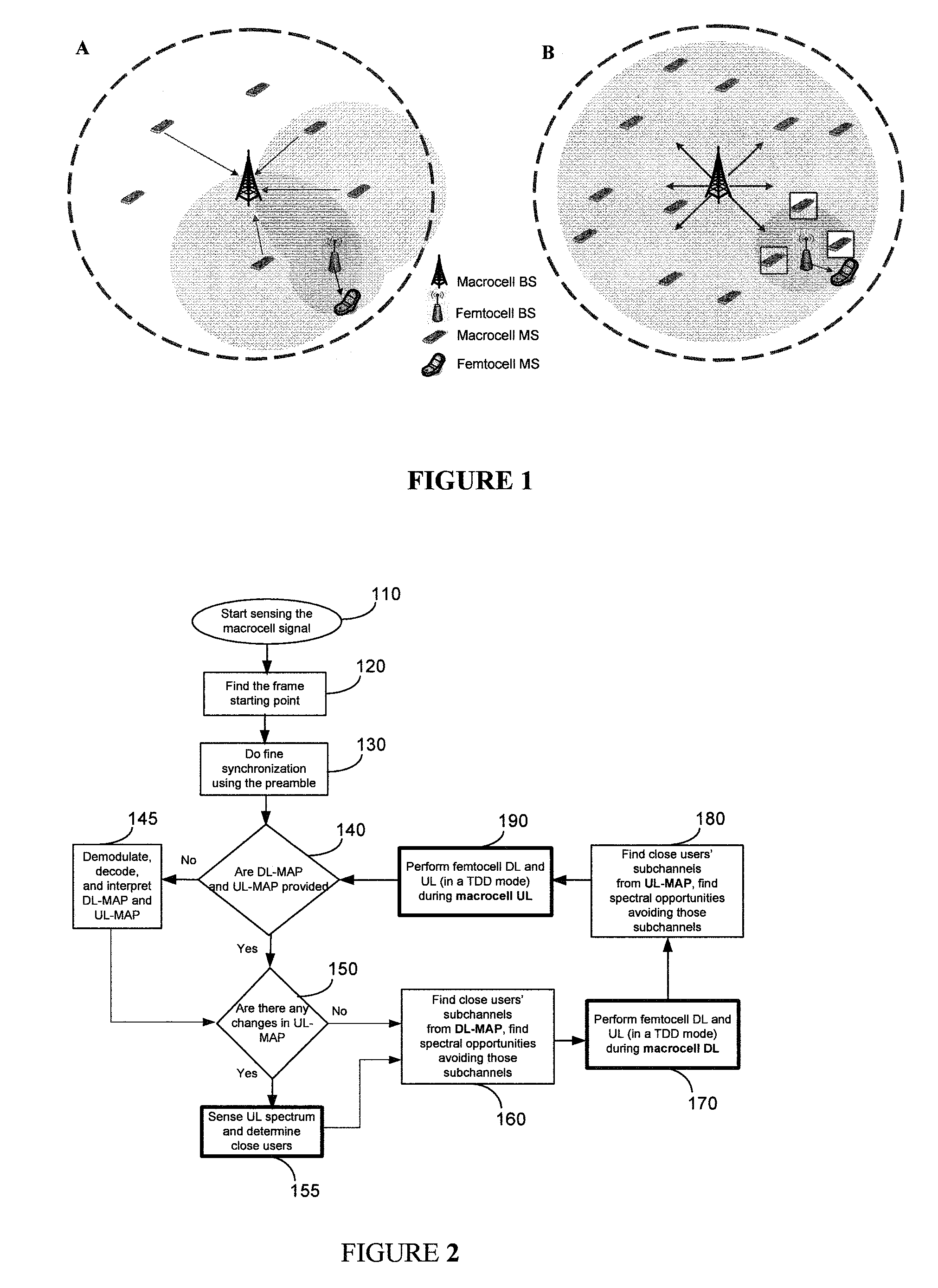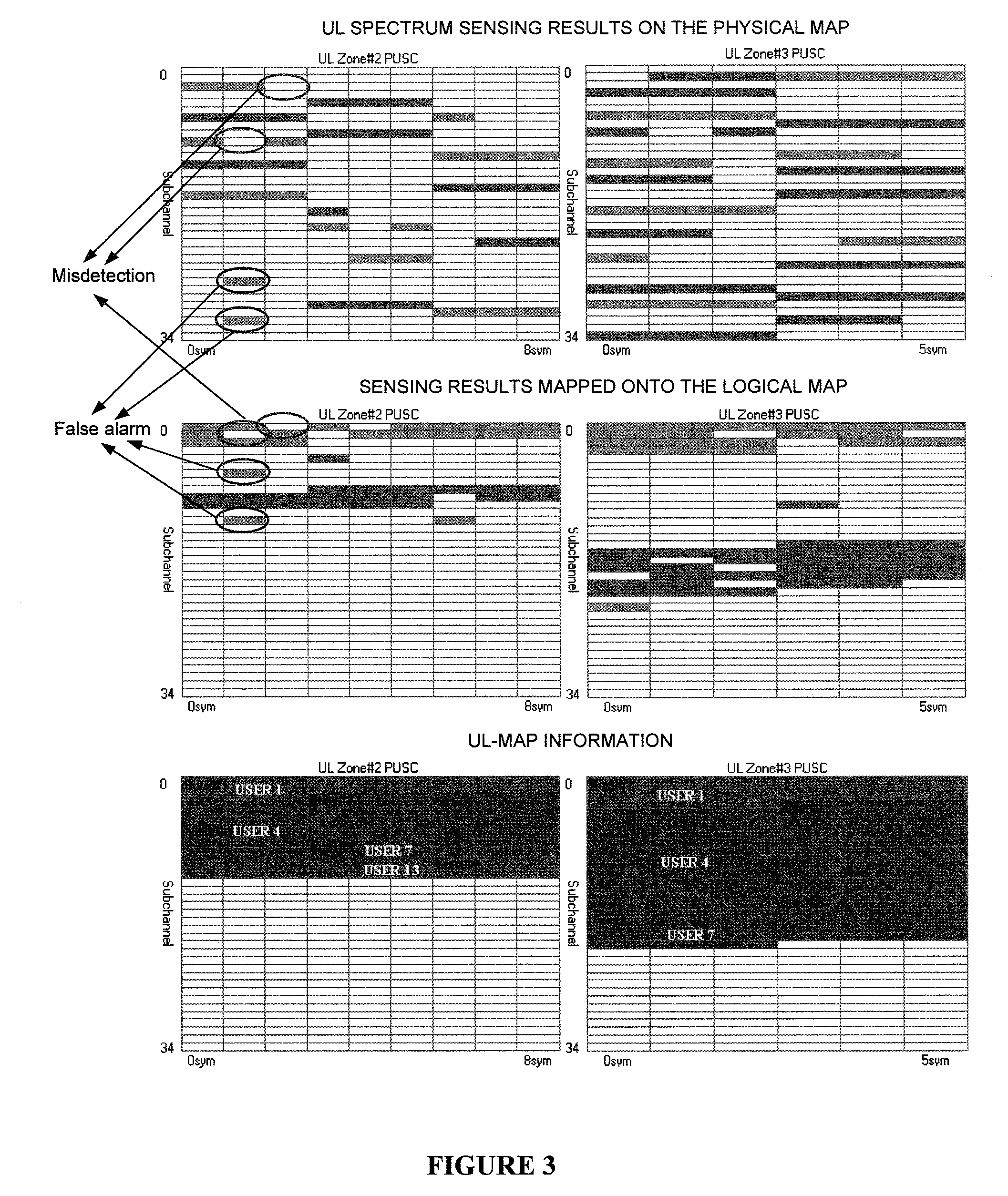OFDMA-based co-channel femtocell
a cochannel and cochannel technology, applied in the field of wireless communications, can solve the problems of poor customer experience, low voice quality and cost of today's mobile telephone network in indoor environments, and mobile telephone cannot be the only telephone subscribers need, so as to increase the efficiency and coverage of macrocell networks, the effect of increasing efficiency and coverag
- Summary
- Abstract
- Description
- Claims
- Application Information
AI Technical Summary
Benefits of technology
Problems solved by technology
Method used
Image
Examples
Embodiment Construction
[0045]Femtocells are cellular networks with a range that is as limited as a wireless local area network (WLAN). Therefore, multiple femtocells may operate within the coverage area of an macrocell BS (mBS). Both the macrocell and the femtocells may use, for example, OFDMA as the physical layer technology. In this detailed description, to simplify the discussion, femtocells are assumed operated by the same service provider (SP) as the macrocell network, and utilizes the same spectrum as the macrocell.
[0046]According to the present invention, a femtocell BS (fBS) first determines whether it can communicate with a macrocell network. If the fBS is not connected to the macrocell network, the fBS may limit its operation to a subset of its capabilities. For example, the fBS may only performs spectrum sensing, but does not serve any femtocell MS (fMS), so as to prevent interference in the macrocell network caused by the fMS. Otherwise (i.e., the femtocell is connected to the macrocell), the ...
PUM
 Login to View More
Login to View More Abstract
Description
Claims
Application Information
 Login to View More
Login to View More - R&D
- Intellectual Property
- Life Sciences
- Materials
- Tech Scout
- Unparalleled Data Quality
- Higher Quality Content
- 60% Fewer Hallucinations
Browse by: Latest US Patents, China's latest patents, Technical Efficacy Thesaurus, Application Domain, Technology Topic, Popular Technical Reports.
© 2025 PatSnap. All rights reserved.Legal|Privacy policy|Modern Slavery Act Transparency Statement|Sitemap|About US| Contact US: help@patsnap.com



